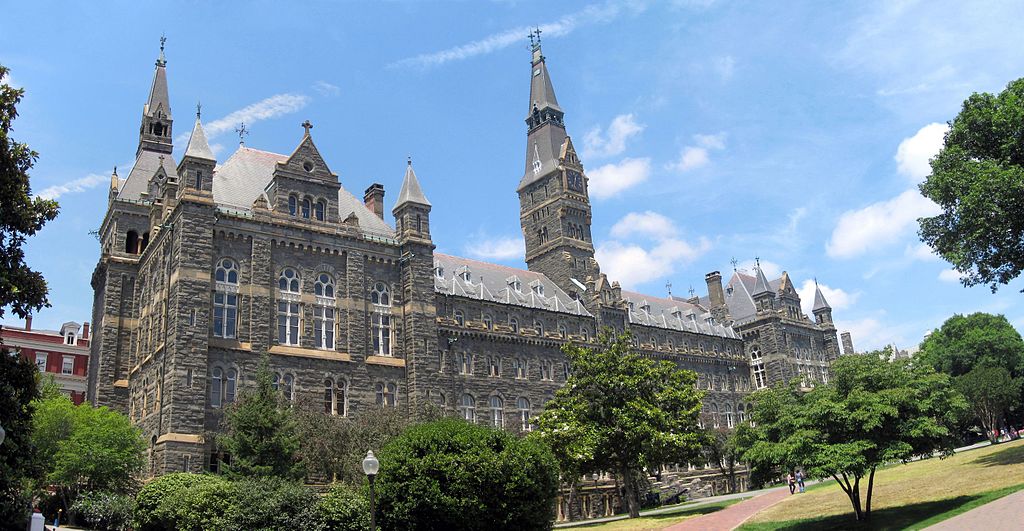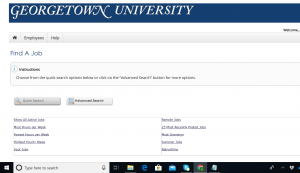In the midst of the global COVID-19 pandemic, many universities have struggled to make the best decisions regarding instructional continuity and student safety. Georgetown has been transparent, communicative, and receptive to student opinions, which has made the transition easier for students and staff. This editorial board feels that the administration has done well in this crisis, but there is room for improvement should anything of this nature happen again.
The administration has created academic policies that are accommodating, providing some relief for students who are unable to make classes their priority with everything else going on. The new optional pass/fail grading policy allows all students to take any class pass/fail instead of receiving a letter grade. Students have up until they take the final exam to make this choice. The policy values student well-being and flexibility over stringent grading standards, which is worth commending—although it also advantages students who are less affected by the pandemic. Student activists took initiative in circulating petitions urging the university to amend different academic policies before the pass/fail option was announced. We applaud these students for advocating for their peers and we appreciate the university’s receptiveness to student suggestions.
However, there is also room for the university to have improved their policies as students returned—or didn’t—from spring break. All classes have moved online with professors relying on technology like Canvas and Zoom. There is a learning curve for this large shift in teaching, and professors are trying their best to adapt, which we appreciate. However, we believe that extending spring break by a week would have given more time for professors to modify their courses, and students to be more settled when classes resumed.
The university did its best in allowing students to move out, and clearly intended to value student safety over everything else. Still, the multiple emails with different amendments and updates made it difficult for students to make clear plans about whether they should return to campus, and how much time they should expect to have to move out. The administration should have emphasized the gravity of the situation from the beginning and explained to students it was likely that they would not be allowed to stay on campus. Accommodating students moving off-campus is another reason spring break should have been extended. Students should not have had to worry about starting their first week of online classes as they were booking cross-country flights and boxing up their dorm rooms.
While Georgetown provided an opportunity for students to apply to stay in their on-campus housing, this process lacked transparency and left many confused. When the administration moved up the timeline they were encouraging students to move out, they did not accelerate when they granted applications to stay, leaving many in a difficult position to make travel plans. Some international students were granted permission to stay, while others were not. Approximately 1400 students applied to stay, and a few hundred requests were granted. However, once the responses were finalized, the university made professional movers available to students who need to move into social distancing appropriate housing, like Village A and Village B, which is a very helpful resource for students staying on campus.
Georgetown has also been supportive of students studying abroad who faced a particularly difficult transition that was exacerbated by President Donald Trump’s unexpected European travel ban. The administration is working with students to refund part of the cost of the last-minute flights back to the United States, as well as any money lost on student residences in other countries. The university has also quickly rolled out their Georgetown University Global Campus, which provides academic continuity for displaced students. This will ensure abroad students can receive full credit for their semester regardless of the online capabilities at the international university they were attending. Georgetown’s administration has been noticeably more supportive and accommodating for students who were abroad than other universities with similar programs.
We are very supportive of the administration’s decision to pledge that student workers and university employees will continue to get paid during the school’s shut-down. On-campus student workers faced uncertainty until an email on March 17, in which the university issued a blanket statement assuring students they would be paid any wages they would have expected to earn this semester. This was a relief for many students who rely on their income to pay their tuition or living expenses. Georgetown has also assured all staff and direct university employees that they will continue to be employed, which offers much-needed stability in this crisis. We do not know whether this extends to contractors as well.
The administration’s decision to postpone commencement, rather than canceling it or moving it online is also one we commend. By making a commitment to the class of 2020 that there will eventually be a commencement, the administration ensures that seniors will have the experience of graduation and a chance to return to campus to celebrate everything that they have achieved. Previous to this decision, student activists created a petition to prevent commencement from being canceled that received over 1,000 signatures after only one day. In making this decision, the university showed that it valued student opinions and is making deliberate efforts to ensure the best outcome for students in the face of all of this change.
We are now at the end of March, and as high school seniors are making their decision about where to go next fall, they should consider how different universities handled this crisis and how schools treated their students. Georgetown did not delay sending out their admissions decisions to prospective students as many other universities did, allowing some normalcy to continue for high school seniors expecting decisions. This is another example of how, in this pandemic, Georgetown’s administration has worked to make sure all decisions were made in the best interest for students, even prospective ones.
The university has had to make many quick decisions that have enormous impact, with limited and rapidly evolving information, relying on changing government policies and differing medical opinions. We want to recognize the administration’s dedication to the entire community and their continued efforts to communicate these new policies. This is also a learning opportunity for Georgetown. It is unclear how long we will need to remain virtual, and the university must ensure that all professors are comfortable with the academic technology necessary for online classes. Additionally, the university should consider a review of the new policies and decisions made because of COVID-19 and use them to create guidelines in case an evacuation from campus is ever necessary again.





